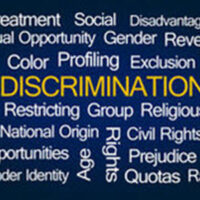Can I File a Claim for Reverse Discrimination?

Have you recently applied for a job in which you faced reverse discrimination? Or have you faced reverse discrimination in your current employment? This is an issue that arises with some frequency and can be controversial, but it is important for job applicants and employees to understand precisely what reverse discrimination involves, and what their rights include under state and federal law. This is actually an issue that the US Supreme Court took up recently and decided unanimously, and that ruling will govern future reverse discrimination claims in Florida and throughout the country. Our Palm Beach Gardens employment discrimination lawyer can tell you more.
Understanding Reverse Discrimination
What exactly constitutes reverse discrimination? According to the Cornell Legal Information Institute (LII), reverse discrimination “involves a claim by a non-minority individual that they were discriminated against on the basis of race or other characteristics or attributes.” Generally speaking, reverse discrimination involves a claim by a member of a dominant or non-minority group (e.g., a white person, a male, a cisgender heterosexual person, a Christian American) that they were discriminated against by an employer or faced bias from an employer in favor of a job applicant or an employee from a minority group (e.g., a Black or Latinx person, a woman, a queer person, a Muslim).
Reverse discrimination claims often involve race or sex, but they can also involve other protected classes.
Supreme Court Decision in Ames v. Ohio Department of Youth Services
In June 2024, the US Supreme Court released its decision on reverse discrimination in the case Ames v. Ohio Department of Youth Services. In a unanimous decision (meaning that there was not a split among the justices about the decision — they all agreed), the Court decided that reverse discrimination claims must be assessed in the same manner as discrimination claims on the basis of the plaintiff being a minority member of a protected class in Title VII cases. Accordingly, the ruling applies to all reverse discrimination claims involving protected classes in Title VII, including race, color, religion, sex (including pregnancy discrimination, sexual harassment, and gender discrimination), national origin, disability, or age.
More precisely, the Court ruled that members of a majority group do not have to satisfy a heightened evidentiary standard to prevail on a Title VII claim. Their claims must be assessed by the same evidentiary standard as a claim filed by a person in a minority group. In other words, reverse discrimination claims under Title VII may be more clearly viable in future cases.
Contact Our Palm Beach Gardens Employment Discrimination Lawyers Today for Help with Your Case
If you have experienced any type of employment discrimination in the job application process or in your current employment, you may be able to file a claim and to seek a remedy with help from a lawyer. This includes discrimination that is commonly described as reverse discrimination, as we have discussed above. One of the experienced Palm Beach Gardens employment discrimination attorneys at Sconzo Law Office is here to assist you with your case. Contact our firm today to find out more about the services we provide to job applicants and employees in employment discrimination matters in South Florida.
Sources:
supremecourt.gov/opinions/24pdf/23-1039_c0n2.pdf
law.cornell.edu/wex/reverse_discrimination
